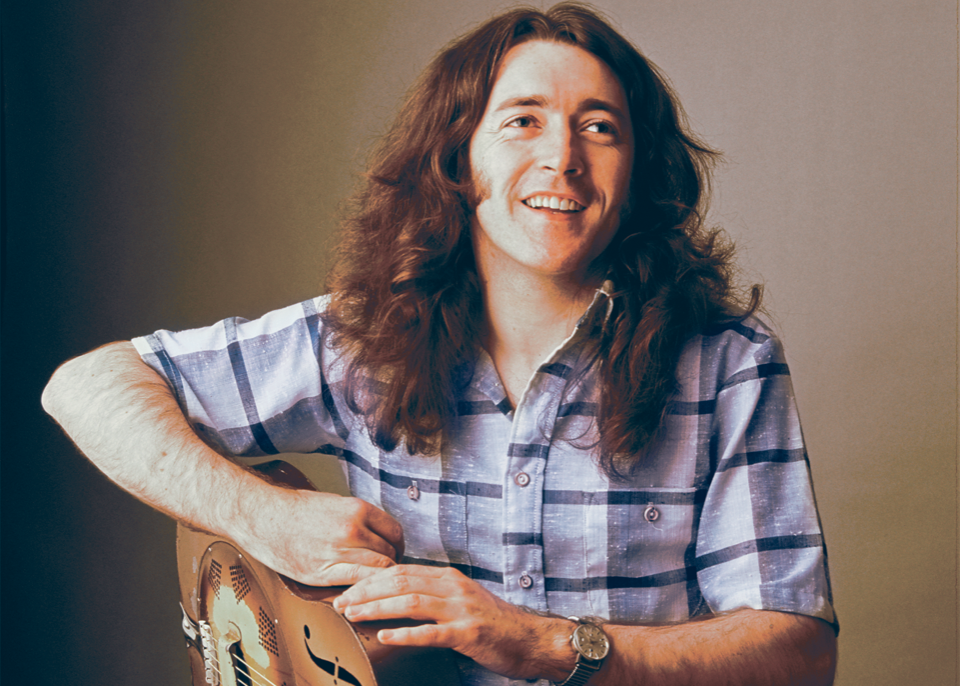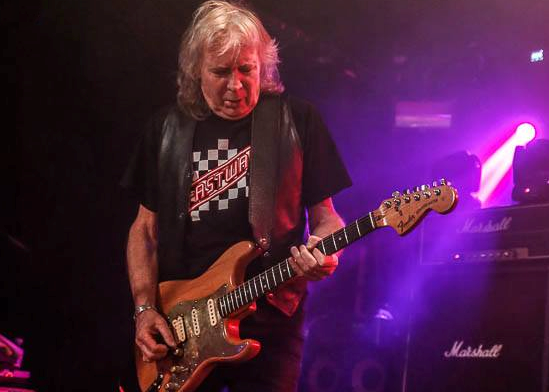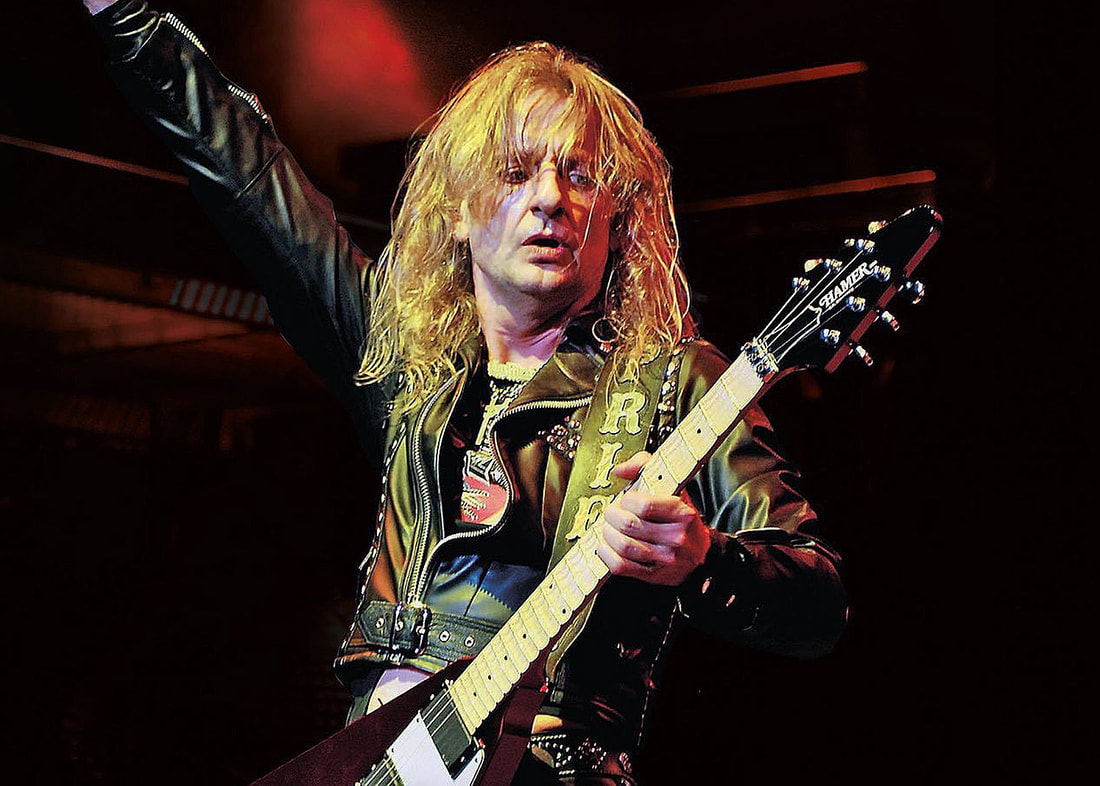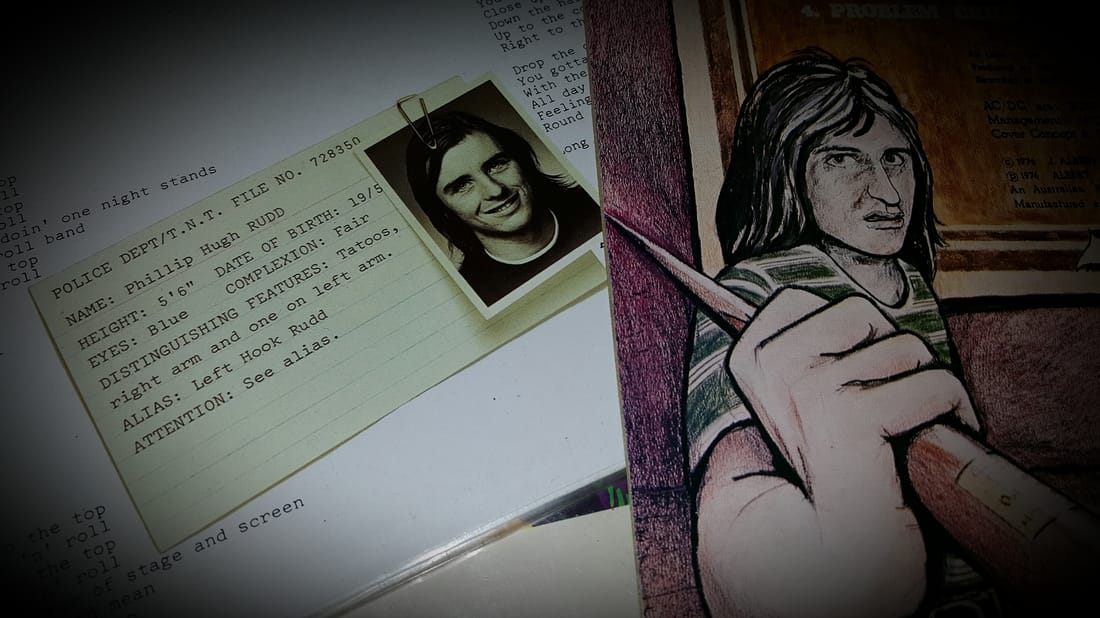|
He may have been his manager, but as brother and confident, Donal Gallagher is undoubtedly the man who knew Rory Gallagher best. By his elder sibling’s side through most of his career, Donal saw it all; from the guitarist’s showband days, to his time with blues trio Taste, and success as a solo artist. There was also the small matter of being courted by the Rolling Stones. Commemorating 25 years since Rory’s passing on 14th June 1995, we sat down with Donal for a chat about all of the above. Top priority; Eamon O’Neill.
Hi Donal, how are you today?
I’m very well. I’m actually down in Cork. I came back in March, and I spend a lot of time in Cork anyway. But the current situation with coronavirus was obviously a good reason to get out of London. It must be hard to believe that Rory’s passing was 25 years ago. Yeah, it’s completely evaporated, is the only way I can put it. In some ways, it feels like yesterday; in other ways, it’s a million miles away. But yeah, you just look around, and where has 25 years gone, you know? You’ve said you’re back in Cork, and you must have some abiding memories of those early days with Rory, walking those streets and hustling for gigs. Being the younger brother, I got him gigs later on when he left the showbands and went into the clubs. I was actually going through a lot of that material over the last few weeks because I’ve archived a lot of stuff, back to the early days of Taste and the formation of that group. I was DJ’ing in the clubs, and at that time, Rory had gone away to Germany with the showbands and was trying to make it on the continent, but actually, the new ‘beat scene’, as it was known, wasn’t aware of Rory; I was trying to tell the guy who ran the club; “my brother’s a great guitar player, and he doesn’t want to be in the showband – he wants to have a group”. So when Rory formed Taste, he came along to see them, and then he booked them for a Sunday night, and the place was mobbed. Rory was going against the grain even in those days, because the whole showband scene was massive in Ireland at that time, wasn’t it? Yeah, and he can’t have been more than 16, going on 17. I mean, he joined the showbands when he was 15, but actually they took off after he joined. Rory refused to wear the uniform, and the rest of them were all in their straight uniforms, and there’s Rory. And you weren’t allowed into the ballrooms unless you had the showband suit on! So he was really breaking the mould at that point in time. In fact, if you look at Roddy Doyle’s book ‘The Commitments’, I do know that was in part, based on a guy like Rory - that was the model Roddy used. In fact, we got sent one of the very first copies of the book because Roddy wanted Rory to come and launch it for him. So, it was that kid who broke the mould. Going back to the heady days, and the Irish Tour film form 1974 really captured something special, particularly with the Belfast footage. Yeah, and if you look at that footage, and the dressing room, and how sparse it is, that is because we were excluded from using the main dressing rooms, which were Ian Paisley’s dressing rooms where he kept his vestments for his sermons. So, it was that juxtaposition of the politics out on the street, and within the hall. But actually, because we have a Northern background – my father came from Derry – it didn’t seem that alien. In fact, I watched the programme because TG4 - the Irish speaking channel showed it here the other week - and it’s upgraded to high definition, and, not being conceited, but it was really well done, and the performance, particularly, it was just a great night to capture. Those live recordings really showcase Rory at his best; on stage is really where he shone, wasn’t it? Yes, and equally the current album that came out for his birthday in March, but also for the 25th anniversary, the ‘Check Shirt Wizard’ which seems to be, from what I’ve heard from a lot of the fans, is right up there. It’s that live moment; it’s that cherished moment that they want to recreate. It’s very hard to ‘bottle’ Rory, and I think the live albums do capture well the whole spirit of his performance. When you are backstage, it’s such a different viewpoint, and you did see the Jekyll and Hyde in Rory; in the coming to the gig, getting in there, and then suddenly wow! It was like the circus; they opened and let the lion in! You have done a phenomenal job since Rory’s passing in curating has legacy, going right back to the Capo re-issues in the mid-1990s. I’m glad you mentioned Capo because that was at a time when Rory just got fed up with the major record companies. In chatting to Rory, I knew how upset he was about how other artists seemed to be getting the treatment that he wasn’t. But that was largely because Rory was always on the road, so the record company thought; “oh, well we don’t need to do anything with this guy – he’s out promoting himself”. So, Capo became the independent label. But I have to give huge credit to my kids, and in particular, Daniel. He was the one who did ‘Check Shirt Wizard’, and he took over the baton. He knew his uncle, and he’s a fine guitar player himself, so he brings something fresh into it. Daniel’s involvement, as a player must lend a new ear to these projects? You almost have to be a guitar player to really know what you need to do in the studio. I mean, I did the ‘Wheels Within Wheels’ [2003], the acoustic album as we call it, because that was part of an unfinished work that Rory wanted to do, so I had to try and figure the aspirations he had, so I was kind of good at that thing, but when a musician comes in, it’s a whole different set of ears, how they hear it. You must be very proud when you see the likes of Slash, Johnny Marr and Michael Schenker speaking so highly of Rory. Absolutely, and, you know, full credit to all these players. As we speak, Hot Press [magazine] are doing a special issue that hits the streets next week, and to that end, there were tributes. At one o’clock this morning I got one from Winston [Marshall] from Mumford and Sons; he texted me and said he didn’t want to do an interview, but said; “I want to write this one myself”, and I became very emotional. When you get somebody like that throwing laurels, it’s so satisfying to see. Rory is rightly remembered as the ultimate solo guitar slinger, but he was approached by a number of big names over the years, wasn’t he?
Yes, and I remember in the mid-‘70s Canned Heat were on a show with us out in Kansas, and [vocalist] Bob Hite – bless him – came in going; “Rory! Where were you when The Owl [Alan ‘Blind Owl’ Wilson] passed away?! We tried to get hold of you!” Taste and Canned Heat had previously done two shows together in Paris at the Olympia, and Rory and Al Wilson just connected really well. But at that time, communications being what they were, perhaps they got in touch with Taste management who didn’t pass the message onto Rory. So that was one I was witness too. More famously, he was also courted by The Rolling Stones. That was an absolute; Rory was the replacement for Mick Taylor, there’s no two ways about it. I took the call. We had just finished playing in Belfast, and we’d got back to Cork and we had a few nights at home before heading off to do a Japanese tour. So that was January 1975, and phones in the Ireland weren’t widely distributed, but we had one at home, and when it rings about 11.30 at night, it can only be one reason; it’s because somebody’s passed on, or there’s been an accident. So, I answered, and because it was then being connected by an operator, you also had to be cautious about kidnappings, because there was a lot going on at that time. I can see why you were cautious! This guy comes on and he goes; “have I got Rory Gallagher?”, and I said; “No, but I think I know where he is!” And he said; “my name’s Ian Stewart”, and I was about to say; “out of the Rolling Stones?”, but I said; “of London, is it?”, and he said; “can I speak to Rory?”, and I said; “can you call back in about fifteen minutes?” – I was putting in a little bit of a buffer. So Rory had gone to bed early, which never happened because Rory was a night owl, but he was so tied after the travel, but I woke him up, and I said; “it’s the Stones on the line, and they want to talk to you”. But he thought I was winding him up, because on tour I was always doing that, and keeping everybody’s spirits up. Did you convince him to take the call? He said; “This is another one of your gags. Why would they be looking for me?” I told him it was Ian Stewart, and he said; “oh, I know Ian”, so he took the call. He was asked to go to Rotterdam in a few days’ time, to just go over and play with the guys. So he said yes he would, but he had a tour happening at the end of the month in Japan and he was preparing for that. So they kept postponing the sessions in Rotterdam because they kept saying that the mobile [studio] needed fixing of something, but I think it was largely because Keith Richards wasn’t well at that time either. But prior to that, Keith Richards had done an article with the NME or someone like that, and when asked about the Rolling Stones record label, he said; “there’s two people want to sign; one is Rory Gallagher, and the other is Peter Tosh”, so, from that, I knew they were very interested. Wasn’t Mick Jagger a fan too? Yes, Mick had done a piece in Melody Maker and cited Rory as an artist that he loved, and couldn’t understand why he wasn’t more of a household name in the states. So, it was kind of a given that he would be asked. So what happened next? Rory flew to Rotterdam on, about the 26th January, and I said to Rory; “I need to go with you”, and he said; “No, these guys, they don’t want managers hanging around. I’m just going over for a jam. I’m not even sure I want to do this, but I’m going to take the opportunity of a jam with them”. And I said; “Rory, they’re talking about their mobile unit not working – they’re going to be recording this!” And he said; “well, they’ve only sent one ticket”, and I said; “I’ll buy my own!” I still have that ticket, btw. So he stayed at the Hilton Hotel, and I still have the room key with his name – ‘Rory Gallagher: Rolling Stones Party’ on it. What happened when he arrived? Mick Jagger picked him up at the airport. It was a freezing cold night, and it was snowing heavily. Rory had a little small Fender Tweed amp in one hand, and a guitar case in the other, while Mick Jagger negotiated the best fare in the taxi back to the hotel! And then when he got there, Marshall Chess, who was the manager said; “Welcome to the Rolling Stones. We knew you were the man for the job”. What happened at the actual sessions between Rory and the Rolling Stones? Rory did three or four nights, and I remember him telling me the first night Keith didn’t come down, so Mick said to Rory; “can you start me up with a riff? I’ve got this song, but can you help me with a riff?”, and Rory said ok, and Jagger was just filling up with a coffee from a vending machine, and it burned him, and he said; “oh jeez, that’s hot stuff!” and Rory said; “oh, is the title ‘Hot Stuff’?” and he said; “oh yeah, that’s a great title!” So yeah, there was a lot of Rory riffs on that album that was used later on. What happened by the end of the sessions? On the final night, Keith had come down, and they had done sessions over the days, but Mick and Keith weren’t talking to each other. So Rory said; “please let me know what’s going on, because I’ve got to be on a plane to Tokyo tomorrow”. And Mick said; “Keith wants to have a good long chat with you. Please go up. He’s waiting in his suite upstairs”. And Rory went up and Keith was comatose in the bed. Rory stayed up all night, went back every half hour, and tried talking, but he wasn’t. So Rory made up his own mind, for whatever reason, and just packed up his guitar and amp, and I met him at Heathrow with a fresh suitcase. I was trying to get out of him what way it had been left, but he was so tired that he fell asleep on the flight. So you headed off to start the Japanese tour, not knowing whether Rory was in the Rolling Stones or not? There were no mobile phones or anything, so everything had to be done either by telex or telegram, but by the time we finished the Japanese tour and went over to Australia, when Rory got off the plane the paparazzi were just ridiculous; they were all going; “it’s the new Rolling Stone!” They asked Rory for a statement, and he said; “no, I’m not joining the Rolling Stones” – but he didn’t mean it negatively. I still have the press from when NME ran the story, and Melody Maker also ran it. But, I think then they just went into overdrive. Probably they just couldn’t understand Rory and the way it had fallen apart, so they sort of almost invited the top 20 guitars in the world from Ry Cooder, to Jeff Beck to Steve Marriott to come and try out. So what do you think happened? I think there was an issue that Rory should have been the man, but Ronnie Wood [who eventually got the job] probably fits in better with the style and with the image. Moving on to Rory’s iconic Fender Stratocaster, and that’s in your possession, isn’t it?
Well, I never classify is as mine because it’s Rory’s guitar, and it will always be in Rory’s guitar, as far as I’m concerned. I mean, yes, I’ve got to look after it. As we speak it’s in Cleveland, Ohio. But it’s one of those items that you’re so precious about it that you kind of have to lock it away in a bank vault, but on the other hand that’s not what you want to do with it. But it’s like the younger sibling brother; it’s more than just a guitar. Fender first produced a replica of it in the late 1990s. I remember taking it out to them, and it had to be on the plane with me. Then they took it off me for a week, and I had to sign a disclaimer that they had to take the whole thing apart and put it back together again. I remember collecting it again, and I wanted to get a few presents for my kids and stuff, so I parked the car in the car park with the guitar in the boot, and when I came back, the car was gone. That must have been one of those out of body moments! All I could do was vomit. I was so sick about the whole thing. But then I got security, and security got my ticket number and started putting out all these alerts and stuff like that, and I thought; “how stupid am I?!” But they looked at my ticket, and they said; “sir, you’re on the wrong parking level”! I know that Joe Bonamassa has played it, but who else has gotten their hands on it since Rory’s passing? It is less than a handful of people. But Bernie Marsden has, and so has Johnny Marr. I got a call out of the blue one night, and it was Johnny. I’d met him in the very early days of the Smiths, but he’d got a hold of my mobile number and he said; “I love your brother’s music. Is there any chance, if I came down to London that I could actually hold Rory’s guitar?” So he came down, and he was there from nine in the morning until ten that night. I just let him play away. He kind of needs his fix every now and again, and a few years later he rang up and he said; “I really need to hold that guitar again”, and he was playing in Shepherd’s Bush that night, and he said; “any chance I could play a number on it?” and I said; “of course”. Didn’t the guitar also make it to Ballyshannon?
Yes, actually before the Ballyshannon festival. When they were naming the Rock Hospital and putting a monument to Rory up there in tribute, the people in Ballyshannon asked me if I’d do something, so I did the exhibition. So the Strat and Rory’s guitars were in the commons centre for a whole week without any fuss of bother. But it was at that time I was walking through the town, and I passed an off licence, and I saw a picture of Rory with a kind of kids handwriting on it, and it said; “this is Rory Gallagher. He comes from my hometown, and I’m really proud of him”. I was quite chuffed, and I happened to have a couple of black and white pictures on me that I’d brought along for the hospital, so I put a little note and put it through the letterbox, and that turned to be Barry O’Neill [Rory Gallagher Festival organiser]. Finally, with the Rory Gallagher festival, and his enduring legacy, what do you think Rory would make of how he’s been celebrated since his passing? Oh, he’d be chuffed to bits. I mean, the album released in March was No.1 in the Billboard Blues chart for three weeks, and that to me is what Rory had strived for all his life; to get that kind of recognition from the blues fraternity. And in a sense, once I saw that I thought, well, I can die happy now – not that I want to - but to me, that would be the feather in his cap, and nothing less than he deserved. Like this interview? Like us on Facebook and follow us on Twitter for regular updates & more of the same. Rory Gallagher's 'Check Shirt Wizard - Live in '77' is available now. |
|
Donal Gallagher
"Mick Jagger picked Rory up at the airport, and the manager said; “Welcome to the Rolling Stones - We knew you were the man for the job”.
© 2016 - 2024 eonmusic.co.ukContact: [email protected]
|




